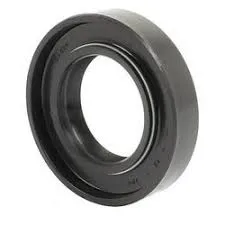9 月 . 09, 2024 19:22 Back to list
custom oil seals
Custom Oil Seals The Key to Efficient Seal Solutions
In various industries, the need for reliable sealing solutions has become increasingly critical. Among these, custom oil seals stand out as vital components that ensure machinery operates smoothly, efficiently, and without leaks. These seals play a crucial role in preventing oil and other fluids from escaping, thus maintaining the integrity of mechanical systems.
Understanding Oil Seals
Oil seals, often referred to as shaft seals or lip seals, are mechanical devices designed to seal the interface between stationary and rotating parts. They serve to retain lubricants and prevent contaminants from entering the system. A leak can lead to serious operational issues, including equipment failure, increased maintenance costs, and potential safety hazards. Given the diverse applications across sectors such as automotive, manufacturing, and aerospace, the need for customized solutions has never been more pronounced.
The Importance of Customization
One of the most significant advantages of custom oil seals is their ability to meet specific requirements that off-the-shelf solutions often cannot fulfill
. Industries demand unique sizes, materials, and designs tailored to their particular operating conditions. For instance, high-temperature environments may require materials with specific thermal resistance, while applications exposed to corrosive substances necessitate seals that can withstand chemical degradation.Custom oil seals can be designed to accommodate various shaft sizes and geometries, ensuring a perfect fit for each application. Whether it’s a large industrial machine or a small automotive engine, the correct seal can drastically improve performance and longevity.
custom oil seals

Material Considerations
The choice of material is critical when designing a custom oil seal. Common materials include elastomers like Nitrile Rubber (NBR), Fluoroelastomer (FKM), and Silicone, each offering unique properties suitable for different environments. For instance, NBR is excellent for petroleum-based oils and is resistant to wear, while FKM is ideal for high-temperature applications. On the other hand, Silicone seals provide a wide temperature range flexibility but may have lower mechanical strength.
It's essential for manufacturers to evaluate the conditions in which the oil seals will operate. Factors such as temperature fluctuations, exposure to various chemicals, and mechanical stress influence material selection. By utilizing advanced engineering techniques and understanding the application requirements, manufacturers can develop oil seals that last longer and perform efficiently.
The Manufacturing Process
Creating custom oil seals often involves a comprehensive manufacturing process, including precise measurements, material selection, and mold creation. Advanced technologies such as CAD/CAM systems facilitate the design process, allowing for high accuracy and the capability to produce intricate designs. Once the design is finalized, the manufacturing process can include injection molding, compression molding, or even 3D printing for prototypes.
Final Thoughts
In conclusion, custom oil seals are indispensable in maintaining operational efficiency across various applications. Their ability to be tailored to specific requirements not only enhances performance but also extends the life cycle of machinery. As industries continue to evolve and face new challenges, the demand for high-quality, custom sealing solutions will only increase. Understanding the importance of these seals can help businesses make informed decisions, ultimately leading to better equipment performance and reduced operational costs. Investing in quality custom oil seals is not merely an expense but a strategic move toward reliability and efficiency in complex machinery operations.